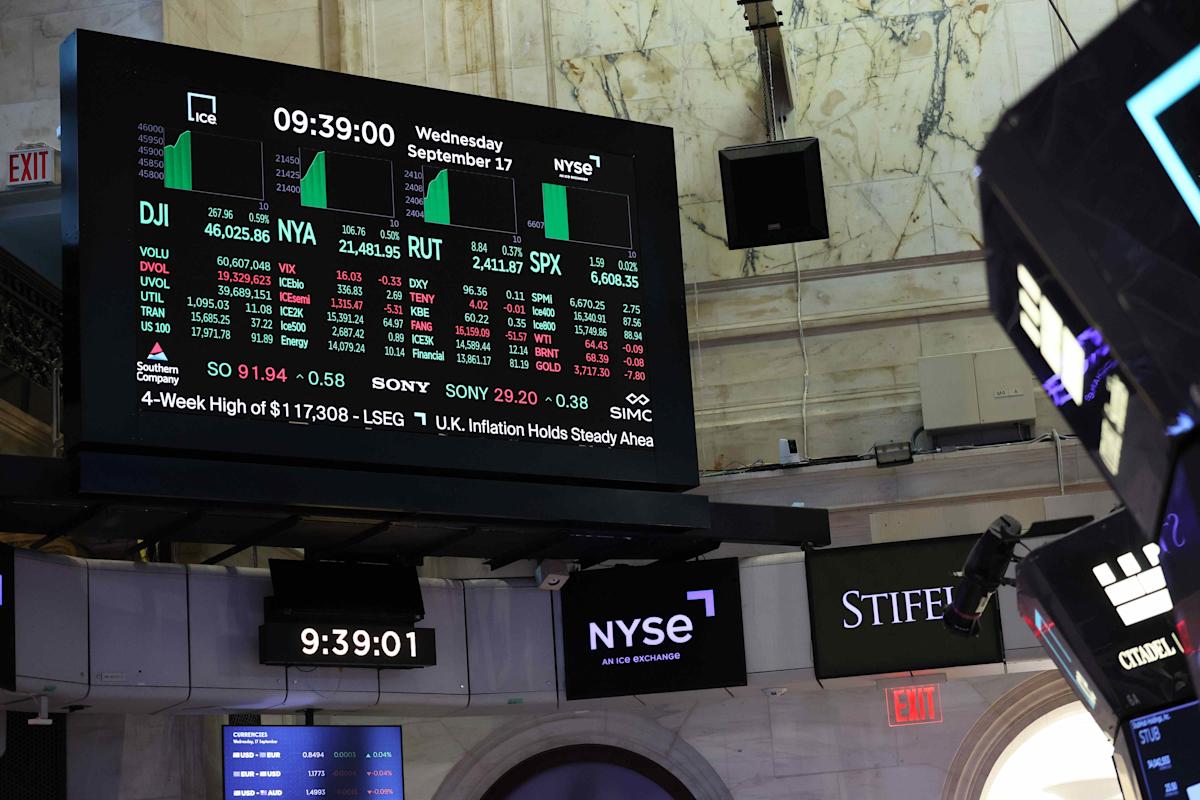A Small-Stock Index Recently Set a New Record. What’s Next for Small Caps?
Michael M. Santiago / Getty Images
The small-cap Russell 2000 index was recently at a record high.
-
The Russell 2000, the benchmark index of small-cap stocks, this week closed at a record high for the first time in years as the Federal Reserve moved into a rate-cutting regime.
-
Some analysts expect the category to outperform in the near term, given relatively low valuations compared to historical averages and large-cap peers.
-
The iShares Russell 2000 ETF has outpaced the iShares Russell 1000 ETF—a measure that tracks bigger companies—in the past three months.
The little engines that could just did.
The Russell 2000 index ended yesterday at 2467.70, setting a fresh closing high for the first time since 2021. Small-cap stocks had been rising on anticipation of lower rates, and after the Federal Open Market Committee on Wednesday offered just that—announcing a quarter percentage-point cut and projecting two more before the year’s end—the index took a victory lap.
Investors have been waiting a while to see sustained outperformance by small caps, generally considered companies with market capitalizations between $250 million and $2 billion, as large-caps have clambered higher. (Both the Russell and the S&P 500 have climbed steadily this year post-Liberation Day, but the latter has outperformed in 2025..)
Smaller companies tend to outperform in declining interest rate environments, benefitting from higher profits and lower financing costs, but their comparatively lower valuations, and collective earnings outlook have also supported their advance.
“There is some reflexivity in that investors have waited so long for performance in small cap stocks, they need to see the start of outperformance of small cap stocks before they believe the trend,” Janus Henderson portfolio manager Aaron Schaechterle told Investopedia last week.
The iShares Russell 2000 ETF (IWM) has outpaced the iShares Russell 1000 ETF (IWB)—a measure that tracks bigger companies—in the past three months, with the former posting a 15% return compared to the latter’s roughly 10% through Thursday’s close, according to Yahoo Finance. Still, Schaechterle sees room for it to keep running.
As of the end of August, valuations indicated small-cap annualized returns of 8% over the next decade, compared to less than 1% for large-cap stocks, according to a recent BofA Global Research report that examined historical price-to-earnings ratios and returns for the Russell 2000 and Russell 1000 indexes.
The group is also seen growing earnings faster than large-cap peers over the next few quarters, Schaechterle said, a change from recent years.



Leave a Comment
Your email address will not be published. Required fields are marked *